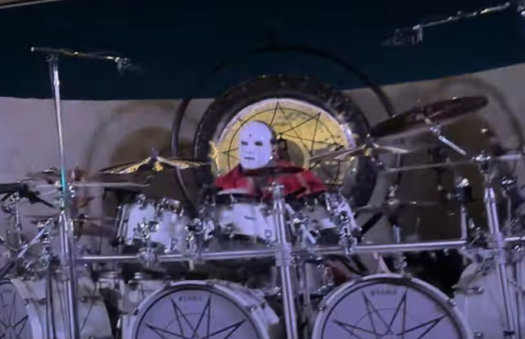It's no secret that the music industry likes to have fun. If you participate in CMW, NXNE, New Music West, or any other industry conference, you'll probably end up at between one and 800 parties. The companies that throw those events ― labels, beer companies, music service companies ― throw them for lots of reasons. But for most, the primary goal is simple: they want you to equate their product with having a good time.
Despite all of the changes in the industry, the release of an album is among the significant milestones in the career of an artist. It only makes sense, then, that artists treat it as an opportunity to do the same thing: throw a kickass album release party.
It's not always easy to do, of course. Overall strategy is of utmost importance, and it starts from the day your engineer hits the big red button. Here are some thoughts on putting together a great event to celebrate the release of an album.
Record first, then plan.
Obviously, there's a lot of work that goes into a recording, so it's natural to want to get it out there as soon as you can. But because so much work goes into making an album, you probably won't have the time and focus to record and plan the release concurrently. So unless you're signed to a label or have a team that's dedicated specifically to planning your release, your overall strategy should complete the recording first, then prep for its release to the world.
Also remember that things can and do wrong. Manufacturing can be delayed, people get busy, and things break down. So if you try to plan a release party before having the albums in hand, you could end up hosting a party without anything to release. Not good.
Involve fans from the beginning.
Going underground for two or three months to record an album can leave your fans feeling disengaged. Simply by giving them updates via social media on a regular basis, like "We're starting our next album," or "Week two and these songs are sounding great," you'll be able to stay connected as well as generate some anticipation and hype. Add in some photos, videos, blog posts, and maybe even some audio samples (carefully selected and strategically released, of course), and your fans will feel like they've been there all along. Great for them, and definitely great for sales and attendance at your release show.
Done! Now what?
There's no better feeling than getting having a finished product in your hand. When you do get the master or manufactured albums in the mail, cherish that moment. Then, realize that the work is only just beginning. Hiring a publicist to generate some media coverage for your album is ideal, since they have the experience and relationships to get the attention it deserves. If you don't have a budget for that, however, you'll have to do that leg work yourself, so work out a plan and start contacting blogs, alt weeklies, newspapers, and radio stations.
Obviously, this is yet another reason why it's important to have a completed album before you start planning the release. Aside from the fact that they actually have to have something to review, it will also take some time to reach those responsible for writing the reviews. You'll also be at the mercy of their publication schedule and turnaround time. Most labels factor in several months of lead time between when the album is ready and when it's released, and you should too.
Book it.
Once you've got the albums in hand and a press coverage strategy mapped out, you can safely book yourself a venue. Most spaces book several months in advance, so again, use this to your advantage to develop hype through social media and press coverage. When looking at venues, it's important to book a space that suits your demographic and genre, has enough capacity, boasts a great sound system, and is available. Every city and town has that "one place" that everyone knows (or maybe a few), so holding a release show there definitely has some advantages, like familiarity and a built in audience. But there's nothing wrong with exploring other options, whether that be other music venues in town or alternative, non-traditional venues.
Keep in mind, though, that if you do go with a non-traditional venue (like an event space), chances are your production costs will be much higher.
Make it an event.
With the amount of competition in the live music industry, there's no question that drawing people is tough. Add on things like other entertainment options, weather, and the economy, and getting people to come and see you becomes even more difficult. There's a new acronym going around the web, and it holds the solution for drawing an audience: FOMO, which stands for Fear Of Missing Out.
Essentially, you need to do everything you can to make your album release a not-to-be-missed event. It's your chance to get creative, making sure it's not just another show. Adding other perks for attending, making it a themed event (related to the album, ideally), and bringing on other partners are all great ways to get people talking. More importantly, they'll think twice about staying home.
Promote.
This is obvious, but it's important to really understand what promotion means. Telling isn't selling ― simply giving people the information about your event on a regular basis probably won't cut it. Instead, focus on the FOMO factor, set up a ticketing system (so people can commit to coming), and look at ways creative ways to spread the word. If you're not great at selling yourself, hiring the right promoter can mean the difference between a success and a flop.
Putting together a great release isn't as simple as booking a show. It takes strategic thinking, patience, and organized promotional efforts. But get it right, and it will be a night that you and your fans won't soon forget.
Scott Honsberger is the President and founder of the Toronto Music Industry Association.
Despite all of the changes in the industry, the release of an album is among the significant milestones in the career of an artist. It only makes sense, then, that artists treat it as an opportunity to do the same thing: throw a kickass album release party.
It's not always easy to do, of course. Overall strategy is of utmost importance, and it starts from the day your engineer hits the big red button. Here are some thoughts on putting together a great event to celebrate the release of an album.
Record first, then plan.
Obviously, there's a lot of work that goes into a recording, so it's natural to want to get it out there as soon as you can. But because so much work goes into making an album, you probably won't have the time and focus to record and plan the release concurrently. So unless you're signed to a label or have a team that's dedicated specifically to planning your release, your overall strategy should complete the recording first, then prep for its release to the world.
Also remember that things can and do wrong. Manufacturing can be delayed, people get busy, and things break down. So if you try to plan a release party before having the albums in hand, you could end up hosting a party without anything to release. Not good.
Involve fans from the beginning.
Going underground for two or three months to record an album can leave your fans feeling disengaged. Simply by giving them updates via social media on a regular basis, like "We're starting our next album," or "Week two and these songs are sounding great," you'll be able to stay connected as well as generate some anticipation and hype. Add in some photos, videos, blog posts, and maybe even some audio samples (carefully selected and strategically released, of course), and your fans will feel like they've been there all along. Great for them, and definitely great for sales and attendance at your release show.
Done! Now what?
There's no better feeling than getting having a finished product in your hand. When you do get the master or manufactured albums in the mail, cherish that moment. Then, realize that the work is only just beginning. Hiring a publicist to generate some media coverage for your album is ideal, since they have the experience and relationships to get the attention it deserves. If you don't have a budget for that, however, you'll have to do that leg work yourself, so work out a plan and start contacting blogs, alt weeklies, newspapers, and radio stations.
Obviously, this is yet another reason why it's important to have a completed album before you start planning the release. Aside from the fact that they actually have to have something to review, it will also take some time to reach those responsible for writing the reviews. You'll also be at the mercy of their publication schedule and turnaround time. Most labels factor in several months of lead time between when the album is ready and when it's released, and you should too.
Book it.
Once you've got the albums in hand and a press coverage strategy mapped out, you can safely book yourself a venue. Most spaces book several months in advance, so again, use this to your advantage to develop hype through social media and press coverage. When looking at venues, it's important to book a space that suits your demographic and genre, has enough capacity, boasts a great sound system, and is available. Every city and town has that "one place" that everyone knows (or maybe a few), so holding a release show there definitely has some advantages, like familiarity and a built in audience. But there's nothing wrong with exploring other options, whether that be other music venues in town or alternative, non-traditional venues.
Keep in mind, though, that if you do go with a non-traditional venue (like an event space), chances are your production costs will be much higher.
Make it an event.
With the amount of competition in the live music industry, there's no question that drawing people is tough. Add on things like other entertainment options, weather, and the economy, and getting people to come and see you becomes even more difficult. There's a new acronym going around the web, and it holds the solution for drawing an audience: FOMO, which stands for Fear Of Missing Out.
Essentially, you need to do everything you can to make your album release a not-to-be-missed event. It's your chance to get creative, making sure it's not just another show. Adding other perks for attending, making it a themed event (related to the album, ideally), and bringing on other partners are all great ways to get people talking. More importantly, they'll think twice about staying home.
Promote.
This is obvious, but it's important to really understand what promotion means. Telling isn't selling ― simply giving people the information about your event on a regular basis probably won't cut it. Instead, focus on the FOMO factor, set up a ticketing system (so people can commit to coming), and look at ways creative ways to spread the word. If you're not great at selling yourself, hiring the right promoter can mean the difference between a success and a flop.
Putting together a great release isn't as simple as booking a show. It takes strategic thinking, patience, and organized promotional efforts. But get it right, and it will be a night that you and your fans won't soon forget.
Scott Honsberger is the President and founder of the Toronto Music Industry Association.




